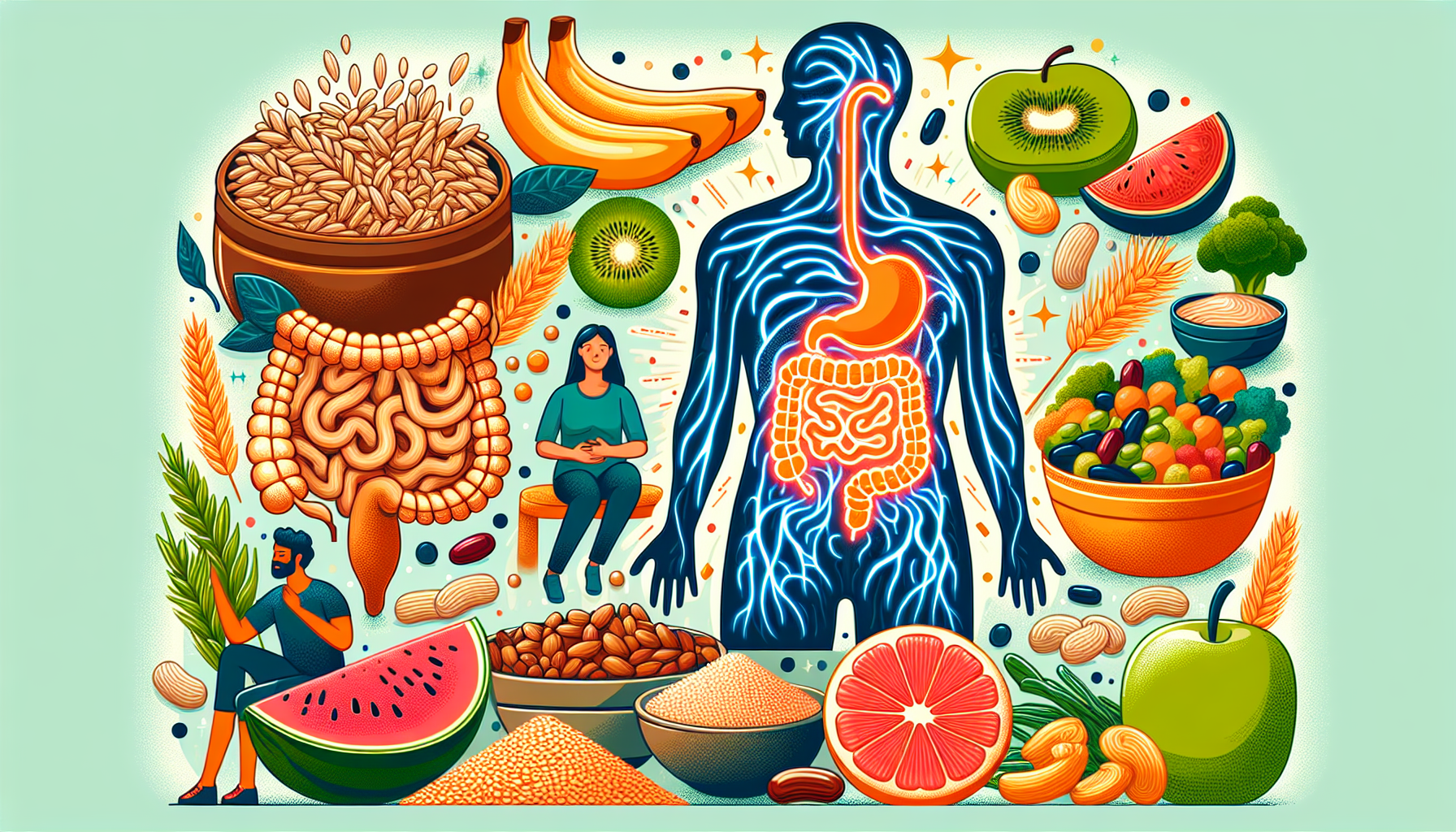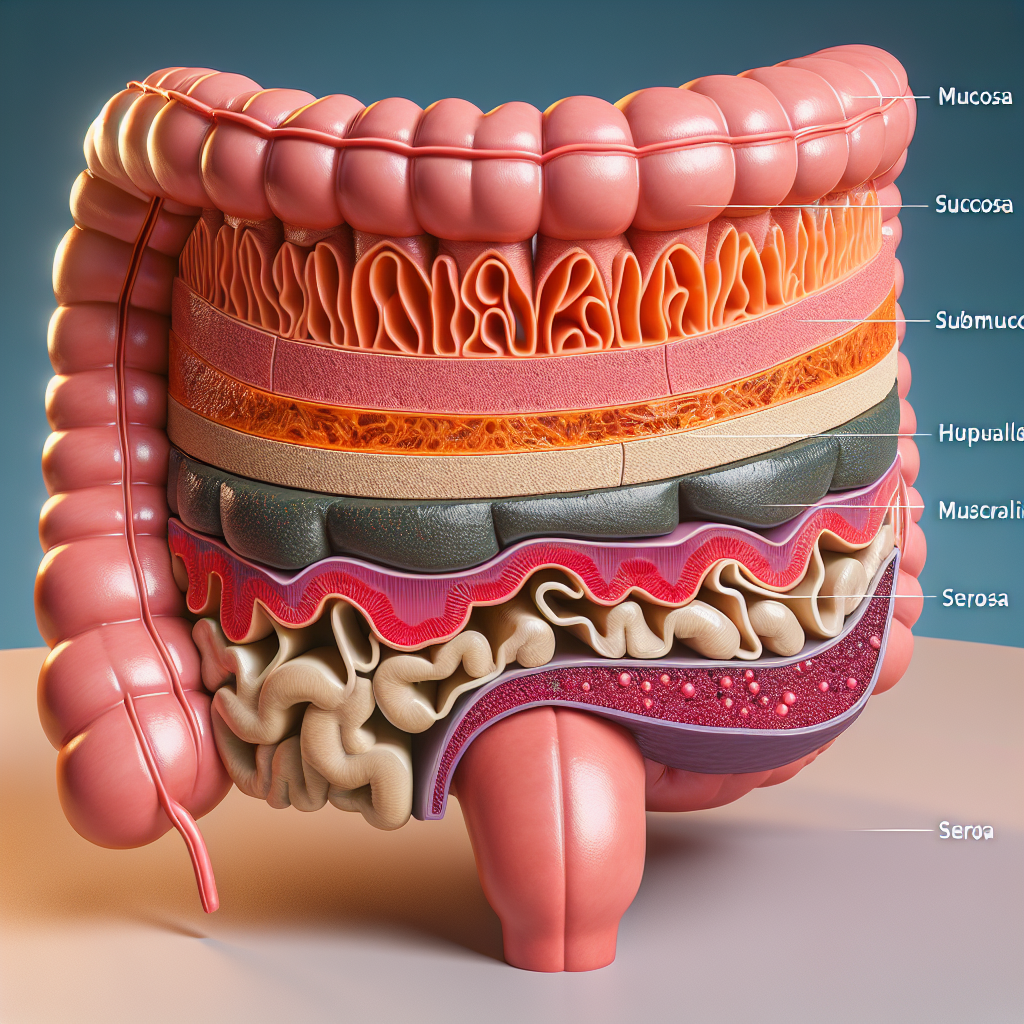Dietary fibers play a crucial role in maintaining optimal digestive health. Often overlooked in the buzz of macronutrients like proteins, fats, and carbohydrates, fibers are indispensable for a well-functioning gastrointestinal system. The intestinal barrier, which is the first line of defense against pathogens and toxins, relies significantly on the type of fibers we ingest. This article delves deep into the world of dietary fibers and their profound impact on the integrity and functionality of our intestinal barrier.
The Role of Dietary Fibers in Digestive Health
Fibers are plant-based carbohydrates that the body cannot digest. They pass through the digestive system, relatively intact, and are categorized mainly into two types: soluble and insoluble fibers. Soluble fibers dissolve in water to form a gel-like substance, aiding in digestion and nutrient absorption, while insoluble fibers add bulk to stool and facilitate its passage through the gut.
The health of our digestive system is paramount, as it is involved in numerous bodily functions beyond the mere breakdown of food. A robust intestinal barrier prevents the entry of harmful substances into the bloodstream, thus protecting the body from various diseases.
The Intestinal Barrier: A Complex Fortification
The intestinal barrier is a complex multilayer system comprising the mucus layer, the epithelium, and the gut-associated lymphoid tissue (GALT). It functions not only as a physical barrier but also as an immunological one. The balance of gut microbiota and the structural integrity of the gut wall are both influenced by dietary fibers.
Fibers and the Mucus Layer
Soluble fibers are prebiotics that serve as nourishment for beneficial gut bacteria. The fermentation of these fibers by the gut microbiota leads to the production of short-chain fatty acids (SCFAs), which have been shown to strengthen the mucus layer. A robust mucus layer protects the epithelial cells from potential damage and reinforces the barrier function.
Fibers and Epithelial Cells
The epithelial layer comprises cells tightly bound together, creating a selective barrier allowing nutrients to pass while blocking pathogens. Insoluble fibers help in the mechanical movement of the gut’s contents, reducing the risk of constipation and related pressure-induced damage to the epithelial layer.
Fibers, Immunity, and Inflammation
SCFAs, particularly butyrate, have anti-inflammatory properties, which can modulate immune responses in the gut. An appropriate immune response is crucial for maintaining the integrity of the intestinal barrier and preventing conditions such as inflammatory bowel disease (IBD).
Dietary Fibers’ Impact on Intestinal Health
Adequate fiber intake has been linked to a lower risk of developing various digestive disorders. For example, fibers can ameliorate symptoms of diverticulitis, reduce the risk of colon cancer, and even aid in the management of conditions like Crohn’s disease.
Prevention of Pathogenic Invasion
Fibers contribute to the acidity of the colon, which can prevent the growth of pathogenic bacteria. By maintaining an optimal pH balance in the gut, fibers support the body’s natural defenses.
Maintenance of Gut Permeability
The intestinal barrier’s permeability is crucial in preventing the passage of harmful substances. An imbalance, often referred to as "leaky gut," can lead to systemic inflammation and autoimmune diseases. Fibers maintain gut permeability by supporting the tight junctions between epithelial cells.
Impact on the Gut Microbiome
The gut microbiome’s composition is influenced by diet, particularly fiber intake. A diverse and balanced microbiome, fostered by a variety of dietary fibers, contributes to overall gut health and barrier function.
Practical Tips for Increasing Dietary Fiber Intake
Incorporating a variety of fibers from fruits, vegetables, whole grains, legumes, nuts, and seeds is essential for a healthy gut barrier. Gradually increasing fiber intake and consuming adequate fluids can mitigate any initial discomfort, such as bloating or gas.
External Resources to Explore
For those interested in further exploring the complex relationship between dietary fibers and intestinal health, here are some valuable resources:
- Monash University’s FODMAP Research – This site provides insights into how certain fibers can affect sensitive guts, particularly in relation to IBS.
- The International Foundation for Gastrointestinal Disorders – This organization offers a wealth of information on how dietary choices impact digestive health.
- The American Society for Nutrition – It publishes research on fiber’s role in gut health and its broader implications for wellness.
- The Gut Microbiota for Health Experts’ Exchange Platform – A resource for the latest research findings on the gut microbiome and its interaction with dietary fibers.
Related Avix Health Articles
For more information on topics related to dietary fibers and digestive health, consider reading these articles:
- Understand the role of plant-based diets in managing gastrointestinal disorders.
- Learn about the connection between gut health and endocrine disorders.
- Explore the importance of enzyme diversity in digestive health maintenance.
In conclusion, dietary fibers are more than just a tool for regular bowel movements. They are essential components of a diet that supports the intestinal barrier function. Through various mechanisms, fibers help maintain the physical and immunological defenses of our gut. By understanding and harnessing the power of dietary fibers, we can take proactive steps towards preserving our digestive health and overall well-being.



